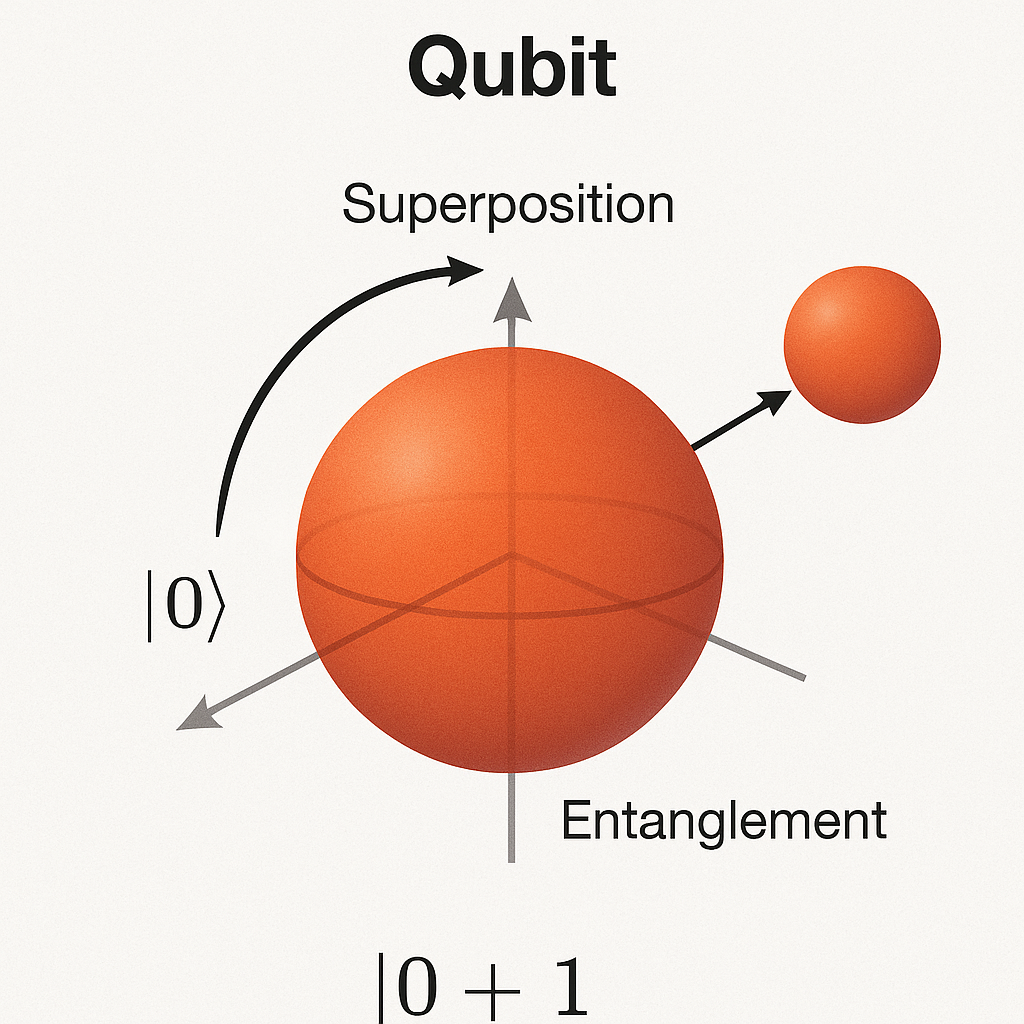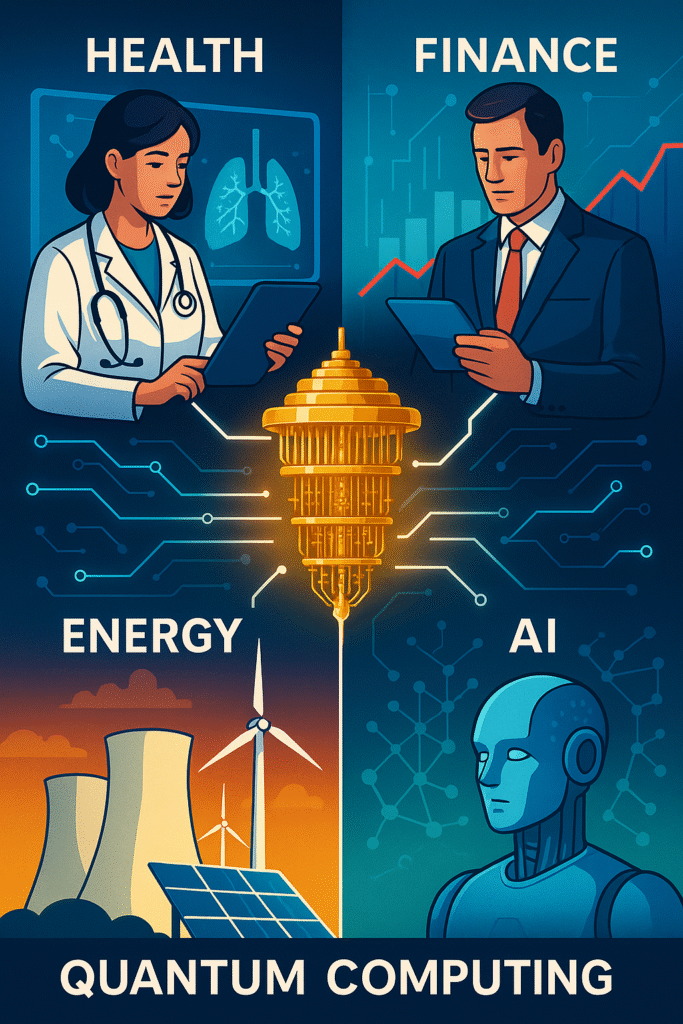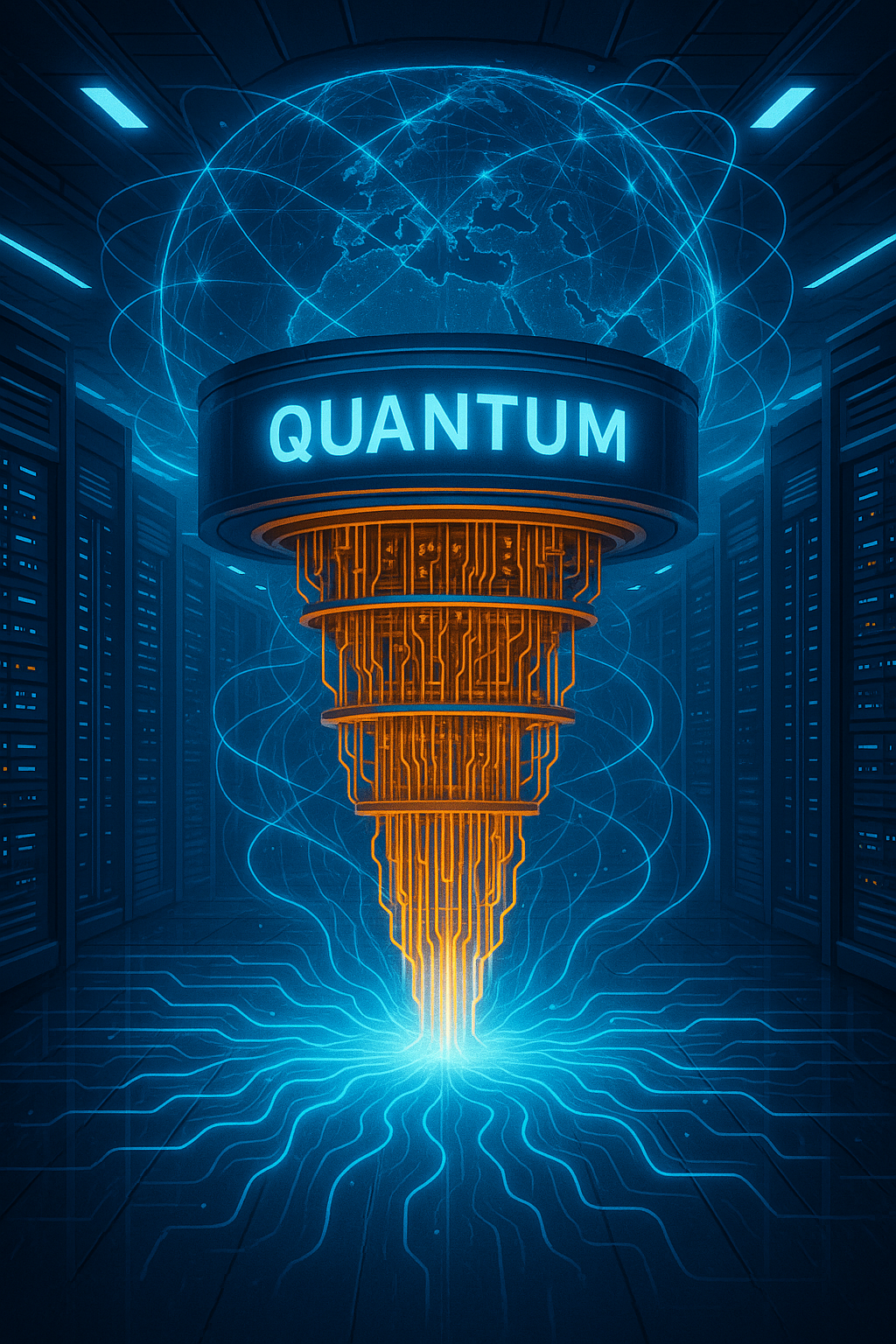The Global Race for the Next-Gen Computers
A Glimpse into the Quantum Future
Imagine a world where computers can solve problems in seconds that would take today’s supercomputers millennia. A world where new drugs are designed atom-by-atom in simulations, supply chains optimize themselves, and encryption methods crumble like sandcastles under a tidal wave of quantum power.
In 2019, Google claimed it had achieved “quantum supremacy”, solving a problem no classical computer could match. But what does this really mean? Are we on the brink of a quantum revolution, or has the hype outpaced the hardware?
This article takes you on a deep dive into the global race for quantum computing: the players, the promises, the perils, and the practical realities.
Quantum 101: Understanding the Basics
At the heart of quantum computing lies the qubit—a fundamental unit that, unlike classical bits, can exist in multiple states simultaneously (thanks to superposition). Qubits also exhibit entanglement, where the state of one qubit affects another, even across vast distances.
The potential is staggering: a system of 300 qubits could, in theory, process more information simultaneously than there are atoms in the observable universe.
But making qubits stable and usable is incredibly hard. Quantum particles are fragile, prone to decoherence, and extremely sensitive to environmental noise. Building a useful quantum computer isn’t just about stacking qubits—it’s about error correction, maintaining coherence, and scaling the technology in practical, cost-effective ways.

The Global Quantum Race: Who’s in the Lead?
United States: Silicon Valley’s Quantum Dream
The U.S. boasts major players like Google (Sycamore processor), IBM (Qiskit ecosystem), Microsoft (Azure Quantum), and emerging startups like IonQ and Rigetti. Federal funding under the National Quantum Initiative Act fuels research across labs and universities.
China: Quantum Ambitions in Action
China’s 2021 announcement of the Zuchongzhi quantum processor, with 66 qubits, sent shockwaves through the tech world. Their quantum network in Hefei demonstrates encrypted communication across cities, hinting at future capabilities in secure communication and quantum internet.
European Union: Collaborative Innovation
The EU’s Quantum Flagship program fosters partnerships between academia and industry, with Germany, France, and the Netherlands leading efforts in quantum hardware, software, and quantum-safe encryption.
Others: Canada, Japan, and Beyond
Canada’s Quantum Valley and Japan’s government-funded programs make them contenders, while Australia’s Silicon Quantum Computing pursues silicon-based qubit systems.

Quantum Hype: Separating Fact from Fiction
“Quantum supremacy”—a term coined to mark when quantum computers outperform classical ones—was first claimed by Google for a specific, narrowly defined problem: random number sampling. But this doesn’t mean quantum computers can outperform classical ones at all tasks.
In fact, the current generation, often called NISQ (Noisy Intermediate-Scale Quantum) devices, are error-prone, limited by short coherence times, and not yet practical for most real-world problems. Critics argue that “supremacy” headlines risk misleading the public, investors, and policymakers.
The hype has triggered a global “quantum gold rush,” but some fear a “quantum winter”—a period where interest and funding may wane as reality fails to match expectations.
Real-World Applications: The Potential of Quantum
Despite the challenges, quantum computing’s potential is extraordinary:
- Cryptography: Quantum computers could break current public-key encryption systems (like RSA and ECC), forcing a transition to post-quantum cryptography.
- Drug Discovery: Simulating complex molecules could accelerate new treatments for diseases like cancer and Alzheimer’s.
- Climate Modeling: Quantum algorithms may improve simulations for weather prediction, carbon capture, and energy grid management.
- Financial Optimization: Quantum systems could revolutionize portfolio optimization, risk analysis, and fraud detection.
Artificial Intelligence: Quantum machine learning (QML) offers faster training of models, though practical examples remain experimental.

Risks, Ethics, and Global Inequality
Quantum computing isn’t just a technical challenge—it’s a geopolitical and ethical one:
- Cybersecurity Risks: Quantum’s ability to crack encryption could undermine global digital security, sparking an arms race in quantum-resistant algorithms.
- Economic Disparity: Will quantum breakthroughs deepen the digital divide, leaving nations and corporations without access behind?
- Weaponization: Quantum technologies could fuel advances in military systems, including navigation, surveillance, and AI-guided decision-making.
Policymakers must balance openness with security, fostering collaboration without compromising national interests.

What’s Next? Timeline for the Quantum Revolution
Experts estimate we’re 5 to 15 years away from practical quantum advantage in commercial applications. IBM’s roadmap predicts a 1000+ qubit machine by 2027, but scaling isn’t linear—solving error correction remains a monumental hurdle.
Key upcoming milestones:
- Development of fault-tolerant quantum computers
- Advances in quantum networking
- Standardization of quantum-safe encryption
Meanwhile, hybrid systems combining classical and quantum processors (e.g., quantum cloud computing) are likely to emerge as an interim step.
The Path Forward
Quantum computing stands at the intersection of science fiction and transformative reality. The hype is real—but so are the challenges. While today’s machines aren’t ready to solve all our problems, the global race for quantum supremacy is driving unprecedented innovation.
Whether we reach practical quantum computing in five years or fifty, one thing is clear: quantum technology will reshape the future of cybersecurity, medicine, AI, and beyond. The race is on—and the world is watching.
Sources and References
- National Quantum Initiative Act (U.S.)
https://www.congress.gov/bill/115th-congress/house-bill/6227 - Google’s Quantum Supremacy Announcement
Arute, F., et al. (2019). Quantum supremacy using a programmable superconducting processor.
https://www.nature.com/articles/s41586-019-1666-5 - IBM’s Quantum Roadmap
IBM Research. (2023). IBM Quantum Development Roadmap.
https://research.ibm.com/quantum/roadmap - China’s Zuchongzhi Quantum Processor
Zhong, H.-S., et al. (2021). Phase-Programmable Gaussian Boson Sampling using Squeezed-Light Pulses.
https://www.science.org/doi/10.1126/science.abe8770 - EU Quantum Flagship Program
European Commission. (2023). Quantum Technologies Flagship.
https://qt.eu/ - Post-Quantum Cryptography Standardization
National Institute of Standards and Technology (NIST). (2022). Post-Quantum Cryptography Standardization Project.
https://csrc.nist.gov/projects/post-quantum-cryptography - Quantum Computing Explained (Scientific American)
Castelvecchi, D. (2017). The quantum internet has arrived (and it hasn’t).
https://www.nature.com/articles/d41586-017-07535-3 - Quantum Computing: Progress and Prospects
National Academies of Sciences, Engineering, and Medicine. (2019).
https://doi.org/10.17226/25196 - Quantum Hype vs. Reality (MIT Technology Review)
Simonite, T. (2023). The promise and hype of quantum computing.
https://www.technologyreview.com/2023/03/16/quantum-computing-promise-vs-hype/ - Quantum Computing Applications (Deloitte Insights)
Deloitte. (2023). The Real-World Impact of Quantum Computing.
https://www2.deloitte.com/us/en/insights/focus/tech-trends/2023/quantum-computing.html



Thank you for your sharing. I am worried that I lack creative ideas. It is your article that makes me full of hope. Thank you. But, I have a question, can you help me? https://accounts.binance.com/ru/register?ref=O9XES6KU
Hey all, thought I’d share this 777sxwin I found. It ain’t mind blowing but it kept me entertained for a bit. Check it out: 777sxwin
Downloaded the 22betapk app. So far, seems pretty smooth. A lot more convenient for playing on the move. Check them out 22betapk and play anywhere!
Okay 7777jii… similar to the other one, worth a shot! Hope it’s a payout kind of night folks. 7777jii
Thanks for sharing. I read many of your blog posts, cool, your blog is very good.
Thanks for sharing. I read many of your blog posts, cool, your blog is very good.
Thank you for your sharing. I am worried that I lack creative ideas. It is your article that makes me full of hope. Thank you. But, I have a question, can you help me? https://www.binance.com/en-IN/register-person?ref=A80YTPZ1
Can you be more specific about the content of your article? After reading it, I still have some doubts. Hope you can help me.